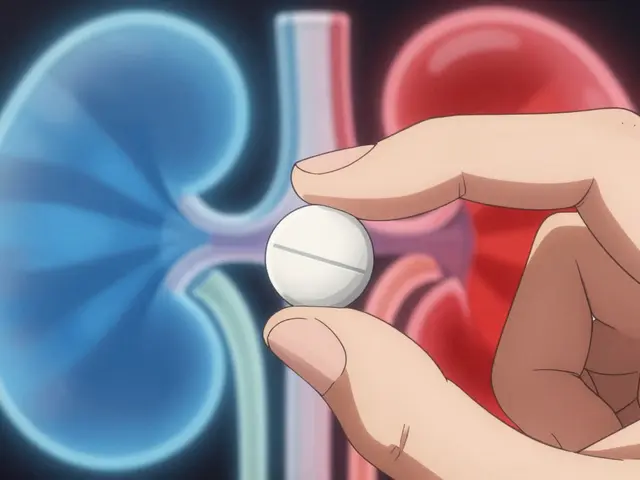Statins Safety: What You Need to Know About Cholesterol Medications
When it comes to lowering statins, a class of prescription drugs used to reduce LDL cholesterol and lower heart disease risk. Also known as HMG-CoA reductase inhibitors, they’re among the most prescribed medications in the world for people with high cholesterol or a history of heart problems. But with so many people taking them, questions about statins safety keep popping up. Are they really safe? Do the benefits outweigh the risks? And what happens if you feel weird after starting one?
Statins work by blocking a liver enzyme that makes cholesterol, which drops your LDL (bad) cholesterol by 30% to 50%—sometimes more. That’s why they’re recommended for people with a history of heart attack, stroke, diabetes, or very high cholesterol. But not everyone reacts the same. Some people feel fine. Others report muscle aches, fatigue, or even brain fog. These aren’t just anecdotes. Studies show about 1 in 10 people experience muscle discomfort, and a small percentage develop more serious issues like rhabdomyolysis, a rare but dangerous muscle breakdown. The key? It’s not about avoiding statins altogether—it’s about knowing your body and monitoring closely.
It’s also important to understand what atorvastatin, a common statin brand name (Lipitor) and one of the most widely used versions does differently than others. Some statins are stronger, others are cleared from the body faster, and some interact more with other drugs. If you’re on a blood thinner, an antibiotic, or even grapefruit juice, that can change how your body handles statins. That’s why your doctor should review everything you take—not just prescriptions, but supplements too. Things like CoQ10 or vitamin D aren’t just random fixes; they can help with side effects if they’re real.
And let’s not forget: statins aren’t magic pills. They don’t replace diet, exercise, or sleep. If you’re taking one because you eat fast food every day and never move, you’re missing the point. The best outcomes happen when statins work with lifestyle changes—not instead of them. People who combine statins with walking 30 minutes a day, cutting back on sugar, and getting enough vitamin D often see better results and fewer side effects.
What you’ll find in the posts below isn’t a list of opinions. It’s real, practical info from people who’ve been there. From how to spot early signs of statin-related muscle damage to comparing generic Lipitor with other cholesterol meds, and even how to safely buy statins online without risking counterfeit drugs—you’ll see the full picture. No fluff. No scare tactics. Just what works, what doesn’t, and what you need to ask your doctor before you start—or keep taking—these pills.

Statins Safety in Nonalcoholic Fatty Liver Disease: What You Need to Know
Learn why statins are safe for nonalcoholic fatty liver disease, how to monitor liver enzymes, dosing tips, and real‑world evidence supporting their use.




